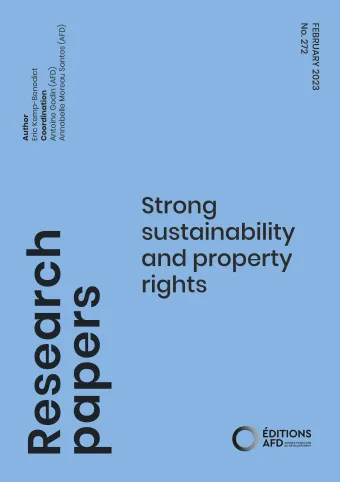Share the page
Strong sustainability and property rights
Published on

The core principle of strong sustainability is non-substitutability. Many economic resources rely on ecosystem function, which is at best partially substitutable; ecosystem function can be maintained under moderate pressure, but at some level ecosystem function is compromised. Markets tend to promote degradation of ecosystems and loss of ecosystem function, raising the question what possible alternatives could support human provisioning while maintaining ecosystem function. This paper argues that a useful entry point is the property rights regimes that underpin markets. It briefly reviews how property rights have been theorized or observed to act in economic systems. It then draws on indigenous property law and the Law and Political Economy literatures to critique prevailing views. Finally, it suggests that property rights in an economics for strong sustainability should be framed in terms of general duties (or duties in rem) towards ecosystems.
Useful Information
-
Authors
-
Eric KEMP-BENEDICT
-
Coordinators
-
Annabelle MOREAU-SANTOS, Antoine GODIN
-
Edition
-
272
-
Number of pages
-
26
-
ISSN
-
2492 - 2846
-
Collection
-
Research Papers
